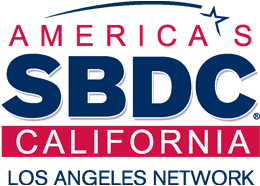June 20, 2012
Local and mobile search are crucial to consumers seeking products and services. In the 2012 Local Search Usage Study by comScore, 61 percent of respondents searching for information about local businesses say local search results are the most relevant, and 58 percent say local search results are the most trustworthy. Here’s what small business owners need to know.
What is local search and why does it matter to small business owners?
“Local search consists of online, geographic-specific search tools that help to match customers to specific businesses and services,” says SBDC Business Advisor Stuart Atkins. These include Google Maps using Google + Local (the new listing for the information that used to be in Google Places for Business), Yahoo Local, Super Pages, Yellow Book and Yellow Pages online services, and Yelp. “Local search matters because it helps local customers find business near where they live and work,” explains Atkins. “It’s convenient, and from a trust standpoint, people often like to buy in their local community.”
Are there certain types of businesses or industries that local search is most important for?
Atkins says local search is crucial for any consumer or commercial business within a reasonable driving or delivery distance of where prospective customers work or live. If you own a retail or service business such as a restaurant or store, a medical or dental business, an auto repair shop or a company selling residential products or services, your website should be optimized for local search.
How can a small business use local search directories or ratings/review sites like Yelp to help it come up higher in local search results?
“First, make sure you are listed with the actual local search online company,” says Atkins. Go to the local search websites mentioned above and fill out your website URL, address and contact information. Your local chamber of commerce may also offer listed search directories.
How does being listed in local search directories help your business’s SEO?
Search engines like Google and Yahoo index these local directories, Atkins explains. Once your website URL and company name and information is listed, the external links from these sites back to your website will help with your basic SEO and ranking exposure. “It communicates credibility,” he says.
What changes should a small business make to its website to help improve its standing in local search results?
Getting listed in local search directories is just the first step. “Second, your website’s home page needs to clearly and simply state what benefits you offer customers,” says Atkins, who recommends using bullet points to communicate benefits quickly. Third, use popular keywords and phrases to describe your products and services. “The free Google Keywords tool will help you find those,” says Atkins. Last, but not least, make sure the overall text and content of your website includes relevant, current content about your product or services. “A blog is a great way to generate dynamic, weekly content about what you offer customers,” Atkins suggests.
With more consumers using smartphones to search for businesses, mobile search is also important. What should small businesses do to make sure they rank well in mobile searches?
The basic content and SEO/keyword tips mentioned above will help, Atkins says. “Don’t overdesign your site with tons of Flash and graphics,” he cautions. “Simplicity, clarity and beauty are the guiding principles for any good website, whether mobile or desktop-based.” This doesn’t have to be complicated. “I use WordPress for my website, and even though it’s not customized for mobile, it still looks great on most popular smartphones,” Atkins says.
How can a small business make sure its website is suited for mobile viewing on a smartphone or tablet?
Many WordPress themes and plugins, including WPtap, WPtouch and WordPress Mobile Pack, will automatically convert your site to a Web application experience if viewed from a smartphone, Atkins says. “Use these under the guidance of a good WordPress designer to ensure proper functionality and setup,” he advises. Design and developer companies are also starting to add mobile, proxy-type website services, Atkins notes. The website senses whether a user is on an iPhone, Android or Windows phone, then seamlessly transfers the visitor to a “mobile friendly” version of your URL. “Naturally, there are added costs involved,” Atkins says. “However, if mobile is an equation in your customer base, it may be worth spending the money to be mobile-friendly.”
How else can small businesses reach mobile customers?
Google Adwords now allows small businesses to run mobile and tablet-only ads. “As with desktop-based Google Adwords ads, this is an effective way to direct targeted, geo-specific and local customers to your website,” says Atkins, who explains that Google Adwords allows you to set a daily budget and run ads targeted to specific cities, states and countries. “It’s a great tool and another form of local, targeted search that helps generates sales and brand exposure.”
Rieva Lesonsky is founder and President of GrowBiz Media, a media and custom content company focusing on small business and entrepreneurship. Before launching her business, she was Editorial Director of Entrepreneur Magazine. Follow Rieva at Twitter.com/Rieva and visit her website SmallBizDaily.com to get the scoop on business trends and sign up for free TrendCast reports.





